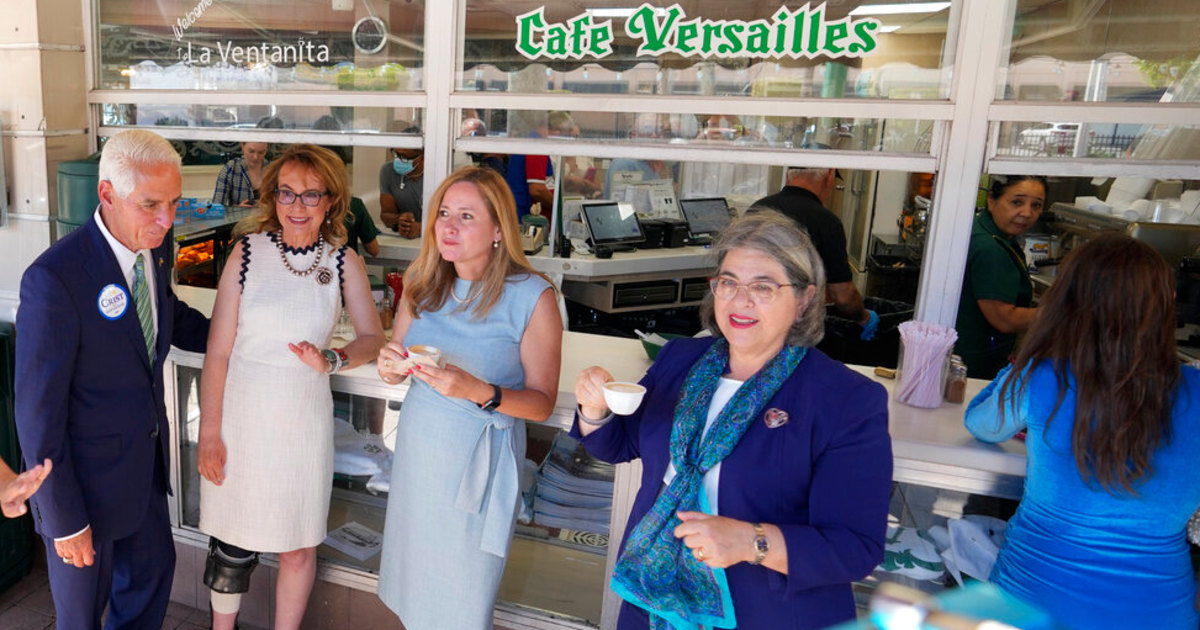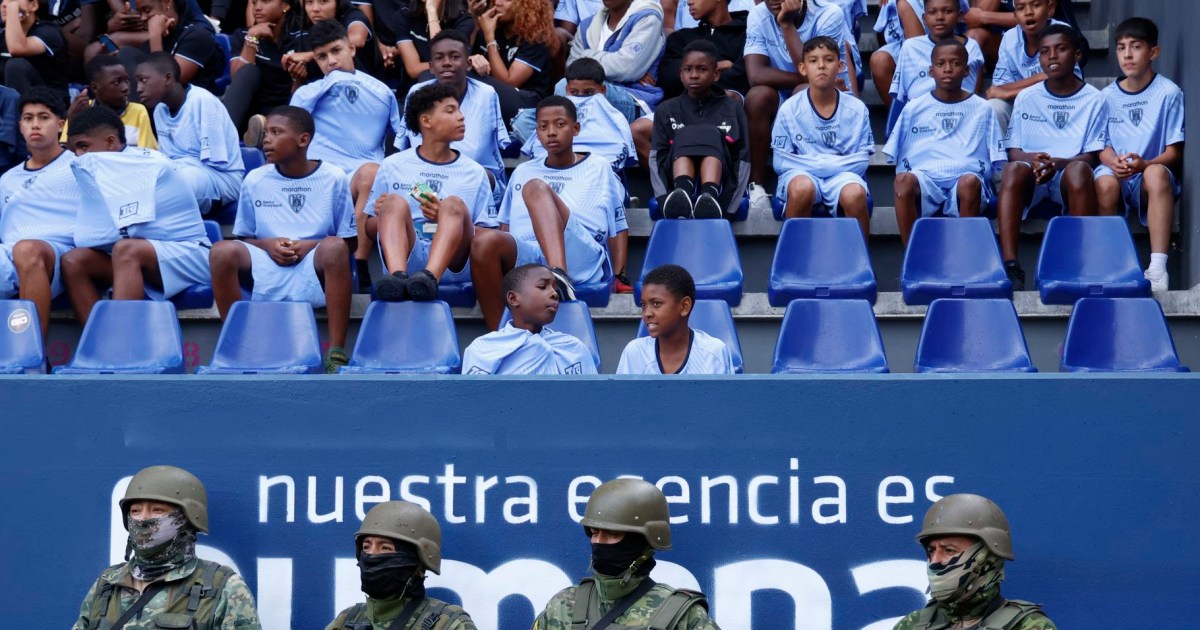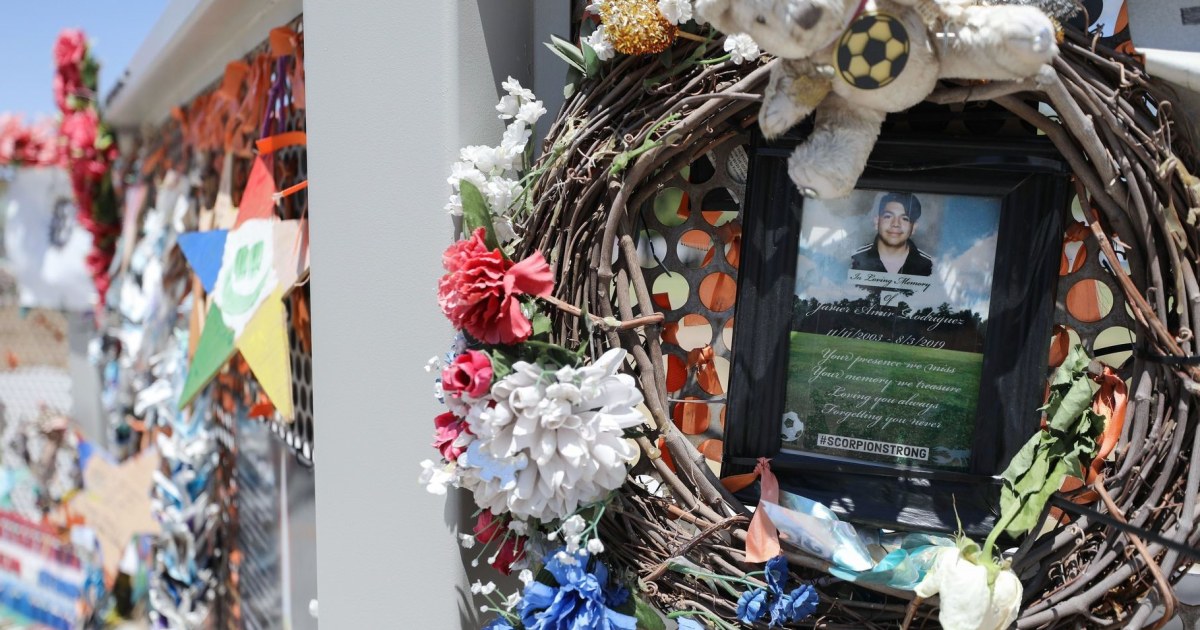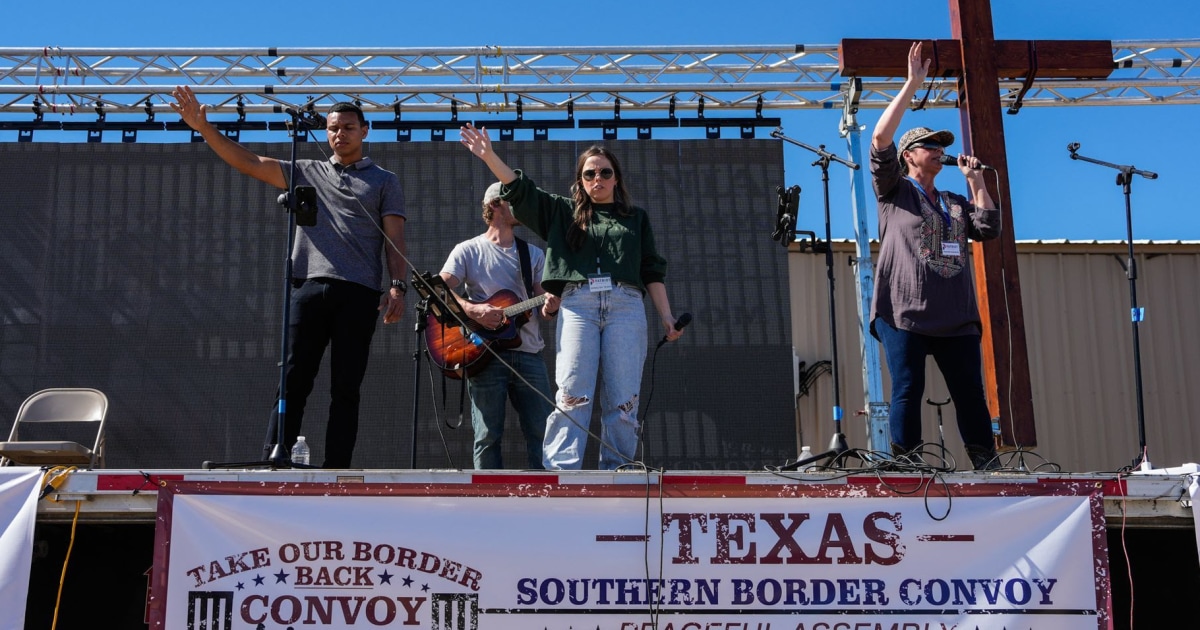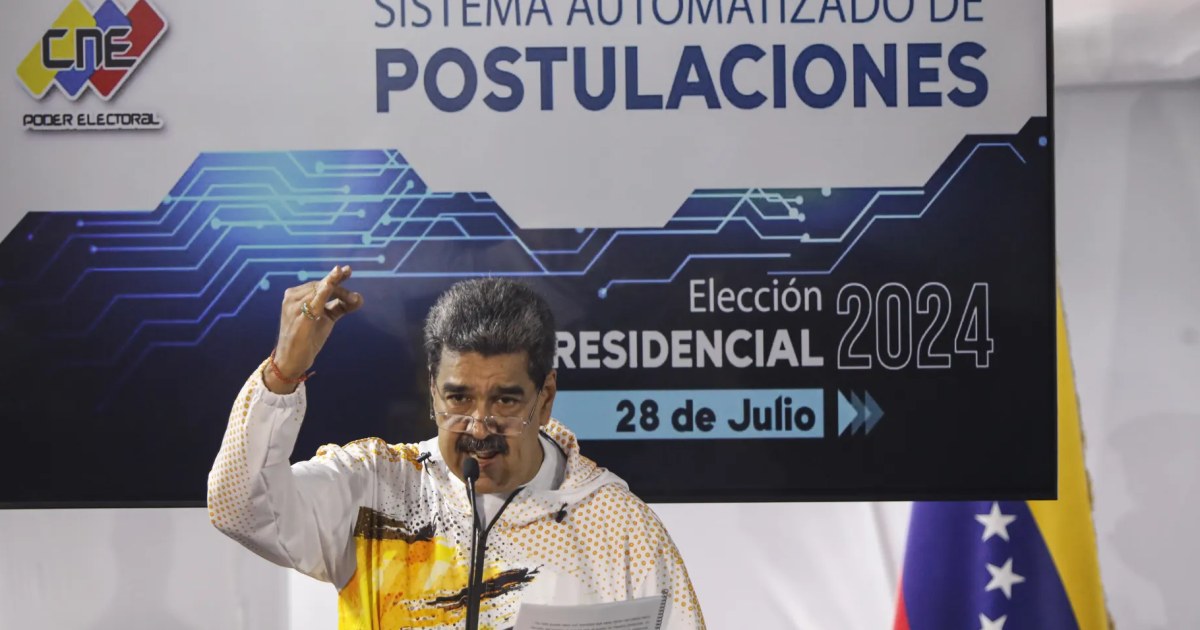Welcome to Axios Latino, a newsletter to tell you every Tuesday and Thursday the stories that have a special impact on Latino communities in the United States and Latin America. If you are interested in subscribing and receiving the newsletter in your email (
in English
), you can do so
by clicking here
.
You will always find it in Spanish on Noticias Telemundo.
1 topic to highlight: United in search of solutions against pollution
Latinos fighting the climate emergency
will come together this week in a virtual summit that highlights the growing environmental activism of the Hispanic community.
Big Picture
: The climate emergency and pollution have a huge impact on non-white communities in the United States and across the Americas.
Unsafe water is more common in Black, Latino, Native American or Asian neighborhoods, and studies show that these demographic groups are also more vulnerable to wildfires and environmental disasters caused by the climate emergency.
A recently published Harvard University study found that most Hispanic, black, and Asian neighborhoods across the country are consistently exposed to higher levels of particulate matter than white neighborhoods.
These factors also cause further displacement, loss of wealth, and long-term health problems for that population.
Establishing stricter environmental controls would also bring considerable public health benefits for all, according to the research.
Aïda Amer/Axios
In numbers
: 81% of Latinos in the United States believe that addressing the climate emergency is a priority, compared to 67% of non-Hispanics, according to a Pew Research Center survey.
Environmental groups, such as GreenLatinos (organizer of the virtual summit) and Climate Power, are making efforts to engage Latinos in this battle.
Between the lines
: The climate crisis also affects Latinos economically, who depend to a greater extent than other groups on industries especially affected by extreme weather, such as agriculture and construction, according to a study by the Environmental Protection Agency (EPA). its acronym in English).
They are also 43% more likely to live in areas that will see the greatest reduction in work hours due to extreme temperatures.
In his own words
:
“When we survey Latinos, we find that they are very concerned about their children, about their children's health, about their children's future.
And climate change is going to be the biggest disruptor in the lives of their children and grandchildren.”
Mark Magaña, FOUNDER and Executive Director of GreenLatinos
The GreenLatinos summit includes among its speakers Secretary of the Interior Deb Haaland;
Senator Ben Ray Luján (Democrat of New Mexico);
the representative for Texas Veronica Escobar;
and Transportation Secretary Pete Buttigieg.
It is celebrated from this Tuesday to Thursday.
Don't forget
: The consequences of global warming have also driven migration from Latin America and the Caribbean, particularly to the United States.
Migrants have lost their livelihoods and have been forced from their homes after hurricanes, heat waves and droughts.
Temperatures in the region have risen more than in the rest of the world.
The UN warned last year that the climate emergency will further deepen socioeconomic inequalities in the region, already among the worst on the planet.
2. A tribute to a Latino who was killed by the police in 1977
The city of Houston and the family of a Mexican-American veteran
who was killed by police in May 1977 have agreed to erect a memorial in Texas.
The death of 23-year-old Vietnam War veteran Joe Campos Torres sparked riots and marked the beginning of massive police reforms in that Texas city.
Landscape of the Buffalo Bayou River, in Houston.
The body of Joe Campos Torres was found there in May 1977. Brandon Bell/Getty Images
Why It Matters
: The plan to erect a monument comes as several American cities are acknowledging issues of racism among their authorities and taking responsibility for past instances of police violence.
Campos Torres' nephew, Richard Molina, told Axios that the family has been waiting more than 40 years for the city to formally acknowledge what happened to his uncle.
The Government of Houston publicly apologized last year to the family of Campos Torres.
More details
: One of the proposals plans to name a square in his honor near the place where Campos Torres was assassinated.
Another calls for a marked path to be built near the river through Buffalo Bayou Park, where Campos Torres' body was found.
The story
: Campos Torres was arrested in a bar on May 5, 1977, accused of disturbing public order.
But instead of taking him to jail, the officers took him to a secluded area near the Buffalo Bayou River, beat him repeatedly and then dumped his body, one of them later testified at trial.
Initially, only two officers were charged.
An all-white, non-Hispanic jury cleared them of murder charges and found them guilty only of negligent homicide, a misdemeanor.
The sentence: one year probation and a $1 fine.
A year later, again on Cinco de Mayo, the Mexican-American community of North Houston erupted in riots in Moody Park.
Dozens of people were arrested.
“Is the life of a Chicano only worth a dollar?!” became a chorus of denunciation.
The case was investigated by federal authorities, and three officers were convicted of civil rights violations in 1978. They served nine months in prison.
3. Past drinks in Latin America
A study on alcohol consumption in eight Latin American countries shows a worrying trend of excesses.
More details
: The researchers examined data from cities in Argentina, Brazil, Chile, Colombia, Costa Rica, Ecuador, Peru and Venezuela.
People in these urban areas drink an average of 4.6 drinks a day, more than double what the World Health Organization considers excessive consumption.
Almost 23% of Argentines drink at least one alcoholic drink a day.
In Ecuador, that figure is 4%, the lowest in the study.
Most adults in the United States are light or moderate drinkers, according to official data: 45% of them drink, on average, three or fewer drinks a week, and 33% report not having drunk in several months.
Excessive alcohol consumption is one of the greatest mortality risks, especially for men, in Latin America and the Caribbean, according to the Pan American Health Organization.
A study links drinking alcohol in youth with accelerated aging of blood vessels
Aug. 25, 202101:27
The intrigue
: Latin American governments have instituted policies such as restricting where and at what times alcohol can be sold, lowering the blood-alcohol level limit for driving and raising taxes in an attempt to reduce consumption.
Yet those policies have fallen short of the alcohol industry's spending on marketing, such as TV ads or sponsorship of events like sports tournaments and concerts, according to a 2020 report.
Notably
: Illicit alcohol sales grew 9.7% in the first year of the pandemic in Latin America, according to market research firm Euromonitor International.
4. An innovative program allows you to specialize in Chicano studies, online
One of the oldest academic programs in the United States for Mexican-American studies now offers a master's degree program through online courses.
Irene Vásquez (right, front) is the director of the Chicano studies program at the University of New Mexico.
Russell Contreras/AP
More details:
The program comes from the University of New Mexico, which launched an online bachelor's degree in Chicano Studies in 2016 that received overwhelming interest.
Its director, Irene Vásquez, said that the academic project will help those who are interested but have complicated schedules to obtain a postgraduate degree.
Vásquez told Axios that very few universities offer online Chicano Studies courses and that he knows of no other that offers a master's degree online.
Background
: The University of New Mexico program was one of the first of its kind when it was founded during the height of the Chicano Movement in the late 1960s. It initially offered courses in Mexican-American literature and history.
Universities, notably in California and Texas, later followed suit with similar programs.
5. Summary of key news in Latin America and the Caribbean
The gold extracted by a company linked to illegal mines in the Amazon
is used by large US companies such as Tesla, according to an investigation by The Associated Press news agency.
The gold was traced to a Brazilian refiner fined for mining in areas that have environmental and indigenous land protections.
Brazilian President Jair Bolsonaro has pushed for economic exploitation of the Amazon, and activists say he has turned a blind eye to illegal mining, logging and ranching.
Deforestation in the Brazilian part of the Amazon has increased since Bolsonaro took office in 2019. Last year it reached its worst level in 15 years.
Activity at an illegal gold mine in Pará, Brazil. Mauro Pimentel/AFP via Getty Images
The State Department
denounced
an attempt to remove the political immunity of Guatemalan judge Érika Aifán.
Aifán has overseen a number of corruption cases.
Some defendants claim that he exceeded his authority by ordering the judicial collection of evidence, and they want to impose criminal charges on him for it.
In his career, Aifán has faced more than a dozen failed attempts to cancel his exemption from facing criminal charges.
But last week was the first time that the Guatemalan Public Ministry did not rule out advancing a request to remove his immunity.
6. 🚲 Take me on your bike
More children in rural Colombia can easily get to school thanks to a police group that restores donated bicycles.
A group of policemen restore bicycles and donate them to children without resources in rural Colombia
Dec. 29, 202102:01
More details
: The name of the project is Recycleta, a combination of the words recycling and bicycle.
Since 2019, around 500 children in Ibargué, in western Colombia, have received bicycles through the program.
The group also repairs wheelchairs.
Thanks for reading, we'll be back on Tuesday.
Do you want to see some of the most recent previous editions?
The risk of 'eternal chemicals'
Technology for the inclusion of Latinos with disabilities
Hispanics make their way into the tattoo world
The
Latinx Debate
Grows
This is how Hispanics made the first Christmas in America
The Mexican behind Snoopy


